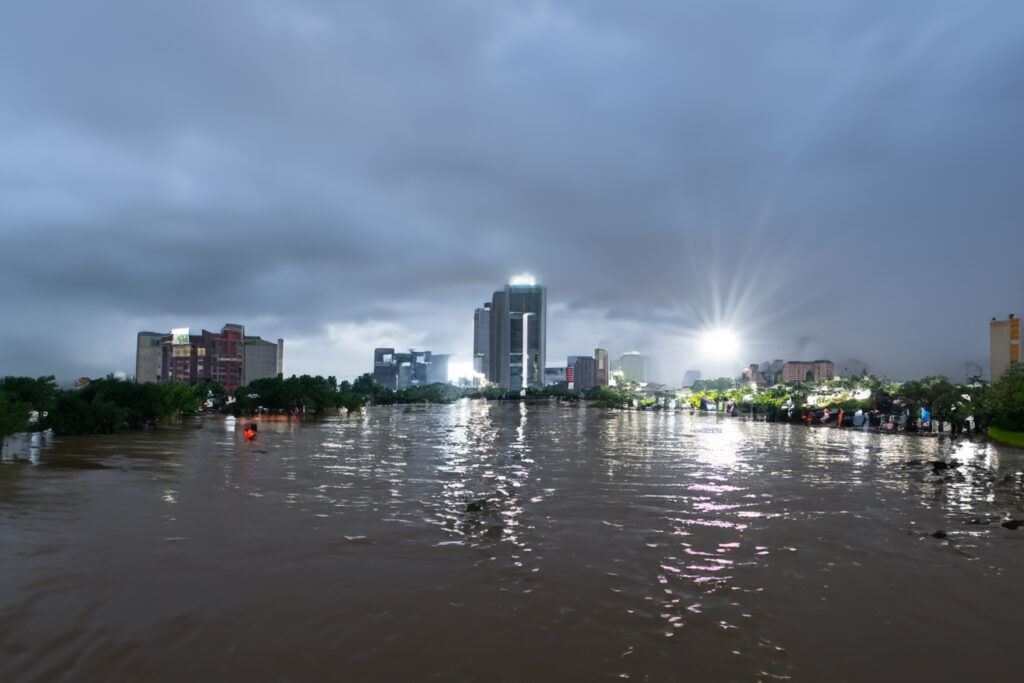While the soothing monsoon showers bring reprieve from the sweltering heat of Hyderabad, the city is also seeing a steep increase in health issues. This 2025 monsoon season, Hyderabad has seen a huge spike in dengue and chikungunya cases,
along with a rise in influenza. Hospitals have been seeing more admissions of fever and viral disease, which necessitate immediate public health warnings. This blog tries to understand the reasons behind this increase, symptoms to look out for, and prevention tips that are crucial for your protection.
Also Read: Top 10 Guilt-Free Healthy Monsoon Snacks to Have with Chai
Why Dengue and Chikungunya Cases Are Increasing in Hyderabad This Monsoon?
Conditions during the monsoons are most conducive for mosquitoes to breed. Standing water that gets entrapped in pots, drains, construction areas, and other containers becomes a perfect incubator for the Aedes aegypti mosquito, which is the primary vector for both the dengue and chikungunya viruses.

In Hyderabad, continuous rains with high humidity and increasing temperatures have led to an explosion in mosquito numbers. Unfortunately, lack of proper mosquito control measures during dry days (rainfree days when larvae develop unobserved) has also aggravated the situation. Consequently, community-level transmission of these vector-borne infections has risen spectacularly, and hospitals are now overwhelmed with fever admissions.
Identifying Symptoms: Dengue, Chikungunya, and Influenza
It’s essential to identify early symptoms of these infections in order to administer timely treatment:
Dengue
- Acute fever that lasts 2 to 7 days
- Severe head and eye pain behind the eyes
- Acute muscle and joint pain, also referred to as “breakbone fever”
- Skin rash and minor bleeding (nose, gums)
Chikungunya
- Rapid onset of high fever
- Severe joint pain, swelling, especially in hands and feet
- Muscle pain, fatigue
- Rash
Influenza (Flu)
- Fever with chills
- Runny or stuffy nose
- Muscle aches and fatigue
- Sore throat and cough
Also read :
Effective Prevention Tips to Combat Mosquito-Borne Diseases
Avoiding mosquito bites and preventing their breeding sources are still the best defenses:
- Remove standing water around your homecheck flowerpots, water coolers, buckets, and drains periodically and drain them.
- Practice dry day mosquito control: Empty and scrub all water containers on dry days to kill mosquito larvae before they have a chance to mature.
- Utilize mosquito repellents and wear light colored long sleeved clothes, particularly during early morning and evening periods when mosquitoes are more active.
- Ensure windows and doors are screened, and use mosquito nets when sleeping.
- Actively take part in community cleanup drives, health awareness drives, and antilarval spraying by local authorities.
Rising Influenza Cases: Not to Overlook
- Apart from vectorborne illnesses, cases of flu are also increasing in Hyderabad during this monsoon. Indoor crowded settings and changing weather patterns increase the spread of the influenza virus.
- Get the annual flu shot if it is available.
- Maintain good hygiene by washing hands often and staying away from close proximity with those who are sick.
Also Read: Hyderabad Drug Treatment Clinic Sees 1300% Patient Surge in 5 Years: Unpacking the Causes and Trends
Healthcare Facilities and The Current Scenario
Hyderabad hospitals are dealing with an overflow of patients presenting dengue-like symptoms, some needing close observation for serious complications such as hemorrhagic fever. Emergency units are reporting a consistent rise in chikungunya cases, especially with crippling joint pain. Moreover, respiratory cases due to flu among children, old, and immunocompromised individuals are on the rise.
Frequently asked questions :
Q1: How long does dengue fever last?
Dengue fever usually lasts for 2 to 7 days. Fatigue and joint pain, however, can last for weeks after the fever has passed.
Q2: Does chikungunya lead to long-term joint issues?
Yes, chikungunya-related joint pain can last for weeks or even months in some patients.
Q3: Is it okay to go to hospitals during the current surge?
Yes, there are strict infection control practices in hospitals. Medical attention is recommended immediately if symptoms appear.
Q4: What is a dry day in mosquito control?
A dry day is a rain-free day that is perfect for draining and scrubbing water-retaining containers to disrupt the cycle of breeding mosquitoes.
Conclusion
The sharp rise in dengue and chikungunya cases during the increasing incidence of flu infections this monsoon is a serious public health problem in Hyderabad. The silver lining is that with heightened awareness and active preventive action at individual as well as community levels, these diseases can be managed well.
Be safe by tracking symptoms, eradicating mosquito breeding grounds strictly, and heeding health alerts. Hospitals are prepared and able to offer treatment, but avoiding infection by taking timely action is the best option.
Let’s make this monsoon season safer and healthier in Hyderabad.
Key Takeaways
Sharp spike in Dengue and Chikungunya cases in Hyderabad in Monsoon 2025 because of optimal mosquito breeding conditions (standing water, humid atmosphere).
- More fever-related hospital admissions reported, straining healthcare.
- Monsoon weather favors mosquito breeding, particularly Aedes aegypti.
- Prevention by controlling mosquitoes is crucial: drain standing water, observe dry day management, use protective clothing, and apply repellents.
- Influenza infections also on the rise, highlighting the need for flu immunization and hygiene.
- Symptoms of dengue last 2–7 days; fatigue can persist; joint pain of chikungunya can last for months.
- Awareness and involvement of the community in control programs are essential to check disease propagation.
Reference: https://telanganatoday.com/hyderabad-hospitals-see-spike-in-dengue-chikungunya-influenza-cases










Leave a Reply